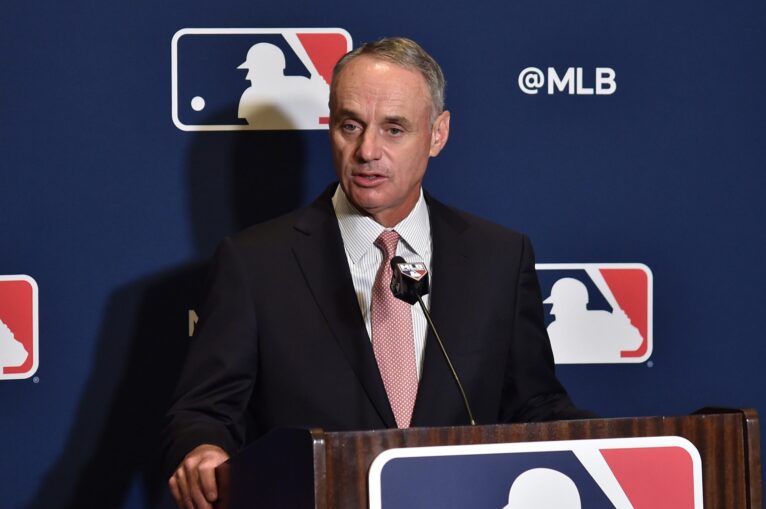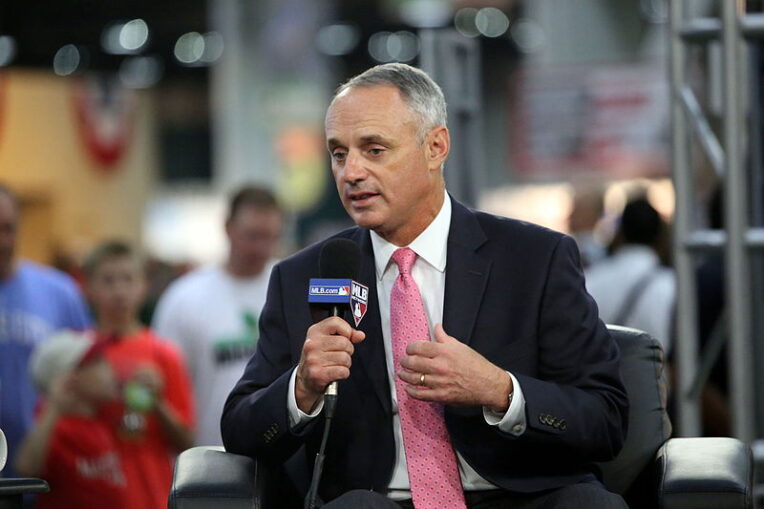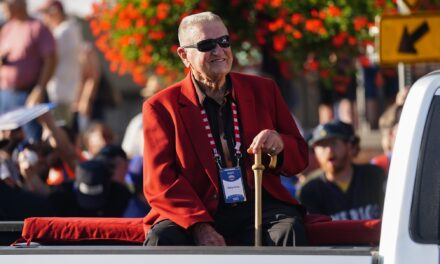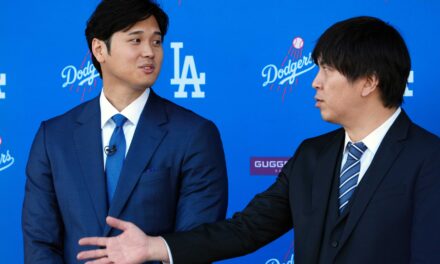
According to Jeff Passan from ESPN, Major League Baseball and the Major League Baseball Players Association are set to meet Monday, for their second negotiating session since MLB imposed the lockout on December 2.
Joel Sherman of The New York Post added that Monday’s meeting will be face-to-face, a different twist on their January 13 meeting that took place virtually.
In the upcoming meeting, it is expected that the players will present a counteroffer to the proposal put forth by the owners in the most recent bargaining session. Perhaps it is a good sign that the sides are meeting in person. The optimist may interpret this as a sense of urgency settling in over the labor dispute, as both parties realize time is growing short if there is to be a deal in place to allow an on-time start of spring training. Most feel that February 1 is a good estimate as to when there needs to be a new Collective Bargaining Agreement (CBA) signed, to allow two weeks for unsigned players to find teams, visas to be in place, etc., so players can report to camps by mid-February.
Any optimism over Monday’s meeting can quickly be dashed by the reality of the situation. The players and owners do not have a good working relationship, and remain far apart on almost all of the key issues. A deal will not be struck on Monday, which is January 24, and it there will have been an 11-day gap between negotiating sessions. Even if the meeting goes fairly well, and the time between meetings is cut in half, that brings us to January 29, which is essentially the cutoff for camps to open on time. There’s always the chance that the session does not result in progress (as was the case with the January 13 session), and if that is the case, spring training will almost certainly be delayed.
In summary, the important issues are as follows:
Arbitration: The owners have proposed a new compensation system for arbitration-eligible players, but will not budge on moving arbitration eligibility to two years of service time, which is what the players want.
Free agency: The players would like free agency after five years, the owners are adamant that it should remain at six years.
Draft: The two sides may be able to agree here. The owners have proposed a draft lottery, so teams are not rewarded for tanking. While the players did not accept the proposal at face value, they probably can come to agreement on this fairly quickly.
Playoffs: The owners proposed 14 teams versus the current 10. The players think expanded playoffs will provide an incentive for teams not to spend. The owners want the increased revenue from more postseason games. They can probably agree on this quickly too, as the obvious answer is to meet in the middle at a 12-team postseason field.
Competitive Balance Tax: This was not discussed in the last session, which probably was wise. This will be the most contentious issue, and where the sides land will be impacted by the agreements on free agency and arbitration. Currently, the CBP is $210 million. The owners favor very modest increases in the next CBA, the players want a significant raise in the threshold, as it’s clear that the CBT acts as a soft salary cap, as noted by new Met and union leader Max Scherzer.
Arbitration, free agency, and the CBT are referred to as the “core economic issues.” There is a lot of work to do in these areas, and time is now very short.
MMO will continue to provide updates on the lockout, and any progress toward a new CBA.
















